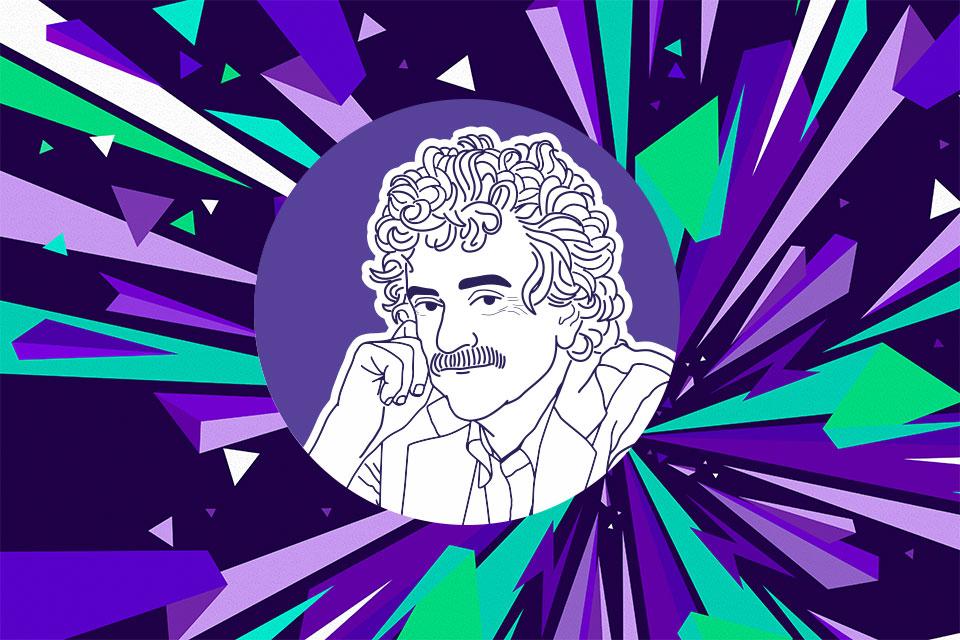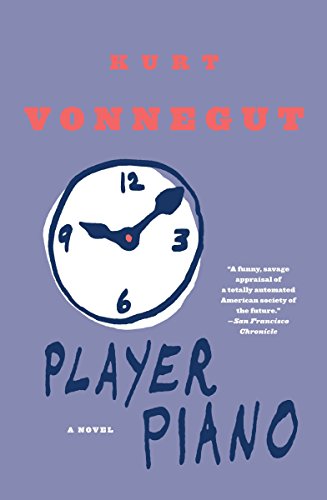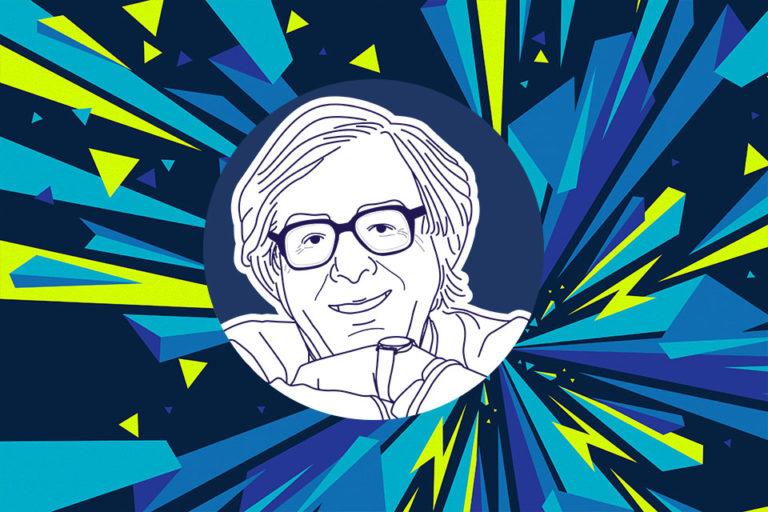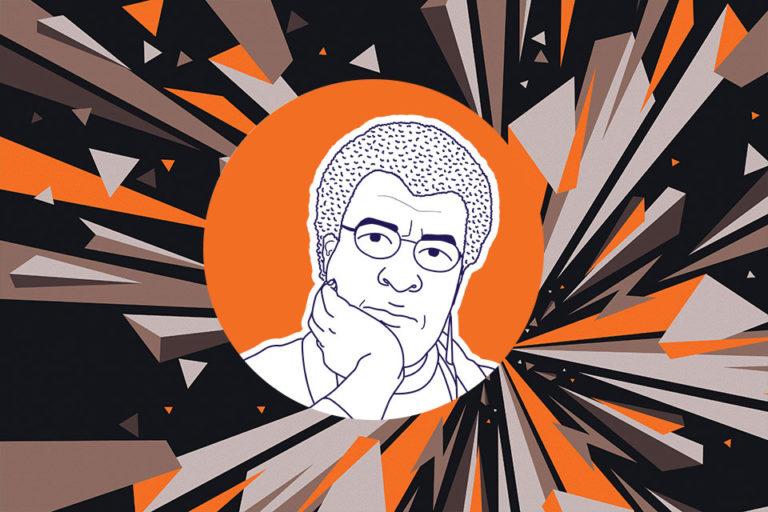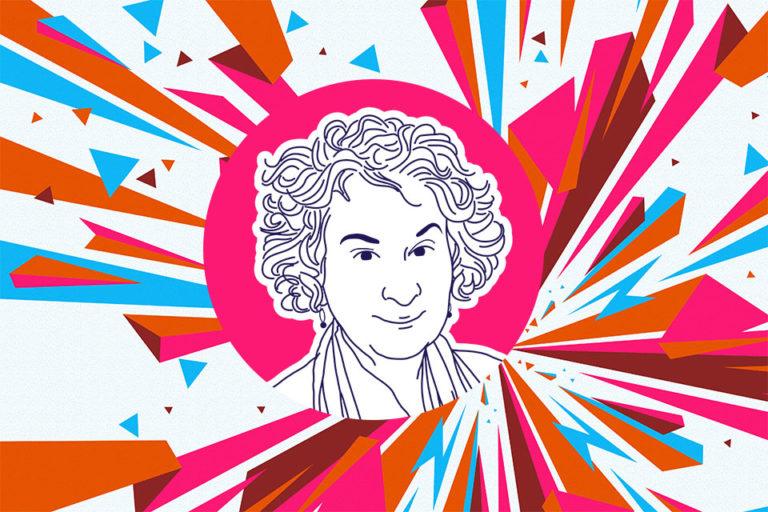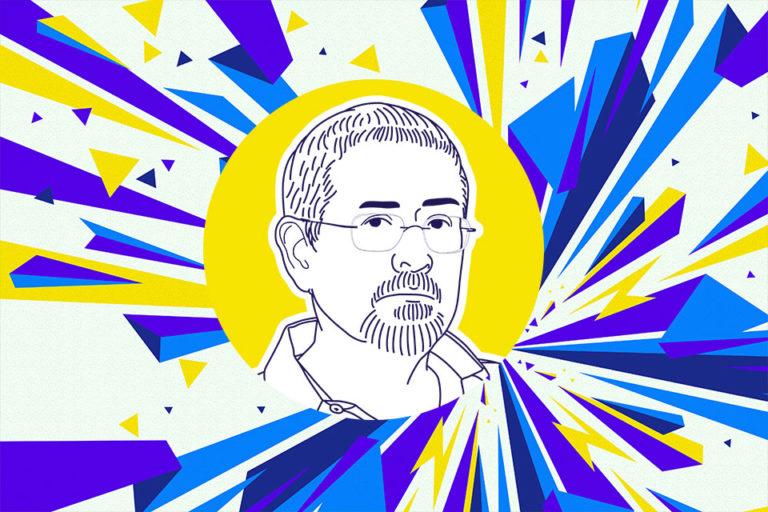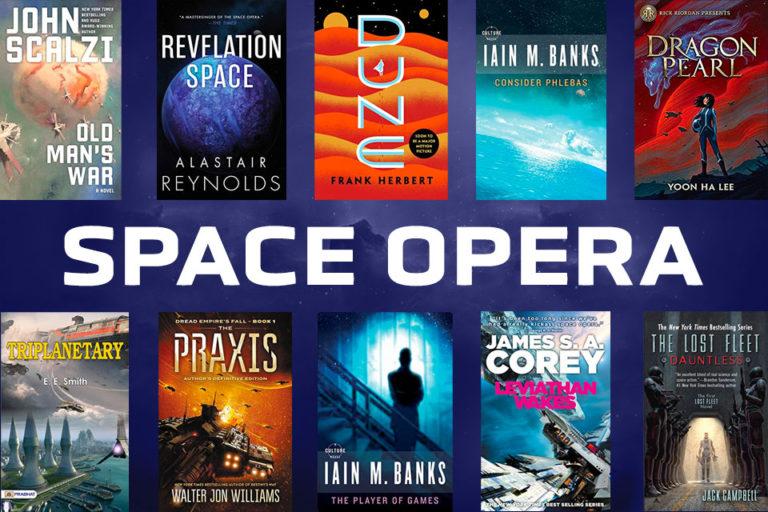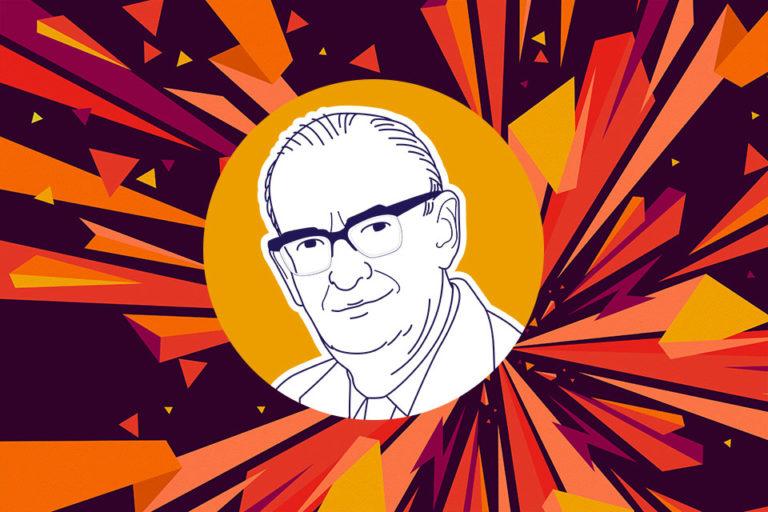Best Kurt Vonnegut Books Ranked
This is the ranking of Kurt Vonnegut’s 14 novels, beginning with the lowest rated and moving toward the most highly rated.
Try Audible Premium Plus and Get Up to Two Free Audiobooks
14. Timequake
There's been a timequake. And everyone—even you—must live the decade between February 17, 1991 and February 17, 2001 over again.
| Goodreads | LibraryThing | Overall |
| 3.72 | 3.55 | 3.64 |
Overview
In 2001, a timequake throws citizens of the world back to the year 1991. They must repeat every action that they had previously taken to get back to where they were in time.
The novel focuses on reflecting on poor choices and can be depressing at some points in the novel. Timequake would be the last novel that Kurt published, and it is seen as a reflection of the author facing his own mortality.
Favorite Quote
Many people need desperately to receive this message: 'I feel and think much as you do, care about many of the things you care about, although most people do not care about them. You are not alone.
13. Deadeye Dick
Amid a true Vonnegutian host of horrors—a double murder, a fatal dose of radioactivity, a decapitation, an annihilation of a city by a neutron bomb—Rudy Waltz, aka Deadeye Dick, takes us along on a zany search for absolution and happiness.
| Goodreads | LibraryThing | Overall |
| 3.82 | 3.66 | 3.74 |
Overview
Rudy Walt accidentally murders someone in his younger years. Telling the story of his life from his home in Haiti, Rudy discusses how deeply traumatized he was by the event. Toward the conclusion of the novel, Rudy realizes that no one besides himself can dole out the forgiveness he seeks.
Favorite Quote
That is my principal objection to life, I think: It's too easy, when alive, to make perfectly horrible mistakes.
12. Hocus Pocus
Here is the adventure of Eugene Debs Hartke. He’s a Vietnam veteran, a jazz pianist, a college professor, and a prognosticator of the apocalypse (and other things Earth-shattering). But that’s neither here nor there. Because at Tarkington College—where he teaches—the excrement is about to hit the air-conditioning. And it’s all Eugene’s fault.
| Goodreads | LibraryThing | Overall |
| 3.82 | 3.68 | 3.75 |
Overview
This novel tells the story of a Vietnam veteran and college professor who has killed exactly as many people as he has slept with.
This off-the-wall satire makes readers laugh out loud and helped Kurt’s popularity soar after it had plateaued in the mid-1970s.
Favorite Quote
Another flaw in the human character is that everybody wants to build and nobody wants to do maintenance.
11. Jailbird
Jailbird takes us into a fractured and comic, pure Vonnegut world of high crimes and misdemeanors in government—and in the heart.
| Goodreads | LibraryThing | Overall |
| 3.82 | 3.73 | 3.78 |
Overview
The most politically akin novel that Kurt wrote was Jailbird. Jailbird follows a fictional character who was just a drone in the White House Administration until he mistakenly gets caught up in the Watergate Scandal.
While this novel strays away from the science fiction genre of most of Vonnegut’s publications, his sense of humor does not leave. This satire reflects on the consequences of bumbling political professionals.
Favorite Quote
“It's all right,' she said. 'You couldn't help it that you were born without a heart. At least you tried to believe what the people with hearts believed- so you were a good man just the same.”
10. Player Piano
Kurt Vonnegut’s first novel spins the chilling tale of engineer Paul Proteus, who must find a way to live in a world dominated by a supercomputer and run completely by machines.
| Goodreads | LibraryThing | Overall |
| 3.88 | 3.74 | 3.81 |
Overview
Vonnegut’s first novel takes place in a post-World War setting. After humans are done fighting for their freedom, they realize they have been replaced in factories by machines. The main character infiltrates the lower ranks of society to start and lead a revolution against the bots.
The novel gained rave reviews and is often compared to Brave New World by Aldous Huxley. Player Piano landed Vonnegut in the genre of science fiction, and he was nominated for the 1953 International Fantasy Award for it.
Favorite Quote
I want to stand as close to the edge as I can without going over. Out on the edge you see all kinds of things you can't see from the center.
9. Slapstick or Lonesome No More!
Slapstick presents an apocalyptic vision as seen through the eyes of the current King of Manhattan (and last President of the United States), a wickedly irreverent look at the all-too-possible results of today’s follies.
| Goodreads | LibraryThing | Overall |
| 3.87 | 3.76 | 3.82 |
Overview
The novel follows the life of two incredibly ugly siblings. The male sibling is a logical thinker and problem solver, while the sister is creative and artistic. They find that if they pair their abilities together, they make a powerful entity.
The siblings are rejected by their parents and kept away from the public eye. The two become extremely close and devise a plan to end loneliness across the country by creating a network of families, linking people together by their middle names.
The sister is deemed mentally handicapped and sent to live in a mental institution while the brother goes to school and eventually runs for president with his campaign slogan being, “Lonesome No More!”
The novel tanked in the review department, with detractors saying the novel made them feel like Kurt Vonnegut had given up on storytelling as a whole.
Favorite Quote
Love is where you find it. I think it is foolish to go around looking for it, and I think it can be poisonous. I wish that people who are conventionally supposed to love each other would say to each other, when they fight, 'Please — a little less love, and a little more common decency'.
8. Galápagos
Galápagos takes the reader back one million years, to A.D. 1986. A simple vacation cruise suddenly becomes an evolutionary journey.
| Goodreads | LibraryThing | Overall |
| 3.86 | 3.80 | 3.83 |
Overview
For many people, the Island of Galapagos is synonymous with evolution and the story of how we came to be. The same theme is told through the eyes of an immortal omnipresence named Leon Trotsky Trout who observes humans from many years in the future.
The story involves a group of people who become shipwrecked on the island of Galapagos. The rest of the world is rendered infertile through a pandemic, and this group is responsible for repopulating the earth. Through the generations, the humans develop strange traits such as flippers and furry pelts.
Galapagos offers readers a path to think about humanity’s current and future impact on the planet we reside on. This novel got Kurt second place for the 1986 John W. Campbell Award.
Favorite Quote
Why so many of us knocked up major chunks of our brains with alcohol from time to time remains an interesting mystery. It may be that we were trying to give evolution a shove in the right direction - in the direction of smaller brains.
7. God Bless You, Mr. Rosewater
God Bless You, Mr. Rosewater is Kurt Vonnegut’s funniest satire, an etched-in-acid portrayal of the greed, hypocrisy, and follies of the flesh we are all heir to.
| Goodreads | LibraryThing | Overall |
| 3.94 | 3.87 | 3.91 |
Overview
The title character of this novel is actually based on an accountant Kurt knew while living in Cape Cod. Mr. Rosewater seeks to atone for his wartime crimes by giving away his fortunes. Rosewater’s family attempts to gain control of his finances, and the power struggle lands Rosewater in a mental hospital.
Upon his release from the sanitarium, Rosewater declares the children of his county to be his heirs, giving them fortunes to hold beyond his lifetime.
Favorite Quote
Hello, babies. Welcome to Earth. It’s hot in the summer and cold in the winter. It’s round and wet and crowded. At the outside, babies, you’ve got about a hundred years here. There’s only one rule that I know of, babies — 'God damn it, you’ve got to be kind.'
6. Bluebeard
Broad humor and bitter irony collide in this fictional autobiography of Rabo Karabekian, who, at age seventy-one, wants to be left alone on his Long Island estate with the secret he has locked inside his potato barn.
| Goodreads | LibraryThing | Overall |
| 4.04 | 3.91 | 3.98 |
Overview
Bluebeard tells the story of painter Rabo Karabekian who leads a very private life. He wishes to keep things to himself so badly that his art studio is kept under lock and key, and he has to be coerced into telling his life story.
The book offers amusing reflections on the art world and dark-humored remarks about the artist’s personal shortcomings.
Favorite Quote
It's the emptiest and yet the fullest of all human messages: 'Good-bye.'
5. Breakfast of Champions
In Breakfast of Champions, one of Kurt Vonnegut’s most beloved characters, the aging writer Kilgore Trout, finds to his horror that a Midwest car dealer is taking his fiction as truth.
| Goodreads | LibraryThing | Overall |
| 4.07 | 3.99 | 4.03 |
Overview
Kilgore Trout is a science fiction writer who befriends his biggest fan, a mentally unravelling businessman. The fan begins to believe that he is the only person on Earth with free will thanks to one of Trout’s novels.
This satire points out the rampant consumerism of American society and dives into the madness of mankind. While writing the novel, Kurt had seemingly lost his passion for storytelling, and that was evident in the less than impressive reviews the book received.
Favorite Quote
We are healthy only to the extent that our ideas are humane.
4. The Sirens of Titan
he Sirens of Titan is an outrageous romp through space, time, and morality. The richest, most depraved man on Earth, Malachi Constant, is offered a chance to take a space journey to distant worlds with a beautiful woman at his side.
| Goodreads | LibraryThing | Overall |
| 4.14 | 4.03 | 4.09 |
Overview
Malachi Constant is a millionaire who is utterly bored with his life until he meets an aristocratic space traveler. Malachi learns that all of humanity and its history are controlled by this alien race.
The funny narrative makes the reader reflect on what free will really means, and humanity’s purpose in the universe.
In 1960, The Sirens of Titan was a finalist for the Hugo Award for Best Novel. In 1973, it won Kurt the Seiun Award for Best Foreign Novel. While not highly regarded by readers at the time of its release, this novel has won over the hearts of die-hard fans.
Favorite Quote
A purpose of human life, no matter who is controlling it, is to love whoever is around to be loved.
3. Slaughterhouse-Five
Billy Pilgrim survives capture by the Germans in World War II, the Dresden bombings, and the struggle for financial success only to be kidnapped in a flying saucer and taken to the planet Tralfamadore.
| Goodreads | LibraryThing | Overall |
| 4.08 | 4.11 | 4.10 |
Overview
In this novel, we follow an American soldier who is imprisoned by Martians, taken to their planet, and displayed in a cage as if he were a zoo animal. While on this foreign planet, the soldier begins to have visions of his future and his past. These nonlinear scenes are a comment on post-war veteran’s PTSD.
The anti-war sentiment resonated with Vonnegut’s audience when it was published in 1969 during the Vietnam War. The book rocketed to the top of the New York Times Best Seller List. For this novel, Kurt won the 1973 Hugo Award for Best Dramatic Presentation. He was nominated for the 1970 Nebula award, and he was a finalist for the 1970 Hugo Award for Best Novel.
Favorite Quote
- Why me? That is a very Earthling question to ask, Mr. Pilgrim. Why you? Why us for that matter? Why anything? Because this moment simply is. Have you ever seen bugs trapped in amber? - Yes. Well, here we are, Mr. Pilgrim, trapped in the amber of this moment. There is no why.
2. Cat’s Cradle
Cat’s Cradle is Kurt Vonnegut’s satirical commentary on modern man and his madness. An apocalyptic tale of this planet’s ultimate fate.
| Goodreads | LibraryThing | Overall |
| 4.16 | 4.11 | 4.14 |
Overview
This novel provides a fantastic reflection on how much room there is for humanity in science. The narrator intends to write about one of the fathers of the Atomic Bomb, attempting to see the scientist’s human side. Meanwhile, this scientist has developed another threat to mankind.
The threat is a small particle that transforms water into ice that will not melt called ice-nine. The narrator writes his novel about the scientist while living on a Caribbean island and exploring a religion native to the region. This religion provides a moral backbone that science does not.
In the end, we read about the narrator wandering the frozen tundra that used to be the Pacific Ocean as ice-nine has ravaged the world. Cat’s Cradle earned Kurt a spot as a finalist in the 1964 Hugo Award for Best Novel.
Favorite Quote
Anyone unable to understand how useful religion can be founded on lies will not understand this book either.
1. Mother Night
Mother Night is a daring challenge to our moral sense. American Howard W. Campbell, Jr., a spy during World War II, is now on trial in Israel as a Nazi war criminal. But is he really guilty?
| Goodreads | LibraryThing | Overall |
| 4.20 | 4.10 | 4.15 |
Overview
The main theme of this novel is to be careful of what you pretend to be because you just may become it. It tells the story of a writer who is now facing trial for war crimes and being charged with being a Nazi propagandist.
The writer is recruited by American forces to feed them information, but no one can tell if what he is saying is true. The writer weaves such an incredibly complex and believable web, it’s hard to discern the truth from fiction.
Favorite Quote
We are what we pretend to be, so we must be careful about what we pretend to be.
Complete Rankings of Kurt Vonnegut Novels
| Rank | Book Title | Goodreads | LibraryThing | Overall |
| 1 | Mother Night | 4.20 | 4.10 | 4.15 |
| 2 | Cat’s Cradle | 4.16 | 4.11 | 4.14 |
| 3 | Slaughterhouse-Five | 4.08 | 4.11 | 4.10 |
| 4 | The Sirens of Titan | 4.14 | 4.03 | 4.09 |
| 5 | Breakfast of Champions | 4.07 | 3.99 | 4.03 |
| 6 | Bluebeard | 4.04 | 3.91 | 3.98 |
| 7 | God Bless You, Mr. Rosewater | 3.94 | 3.87 | 3.91 |
| 8 | Galapagos | 3.86 | 3.80 | 3.83 |
| 9 | Slapstick or Lonesome No More! | 3.87 | 3.76 | 3.82 |
| 10 | Player Piano | 3.88 | 3.74 | 3.81 |
| 11 | Jailbird | 3.82 | 3.73 | 3.78 |
| 12 | Hocus Pocus | 3.82 | 3.68 | 3.75 |
| 13 | Deadeye Dick | 3.82 | 3.66 | 3.74 |
| 14 | Timequake | 3.72 | 3.55 | 3.64 |
About Kurt Vonnegut, Jr.
Descending from German immigrants, Kurt Vonnegut, Jr. was born in Indianapolis in 1922. His mother came from a wealthy family, and his father was an architect. They lived a comfortable life until the Great Depression.
The Great Depression stripped the family of their financial security and high status. Both of Kurt Jr.’s parents were psychologically affected by the change in lifestyle. Kurt was the only one of his three siblings to attend a public school, as previously there was enough money to send the children to a private school.
Attending a public school turned out to be a blessing when he had the opportunity to write for, and eventually become an editor of, his high school’s newspaper The Shortridge Echo. During his college years, he wrote for Cornell University’s Cornell Daily Sun.
In May of 1942, Kurt dropped out of college. He enlisted in the army shortly thereafter. Kurt took leave from the army in 1944 to come home for Mother’s Day. When he returned home, he discovered his mother had committed suicide just the day before.
Kurt fought in the Battle of the Bulge and was captured as a prisoner of war along with 6,000 other soldiers. As they were hauled away by boxcar to the POW camp in Dresden, the train carrying them was mistakenly bombed by Allied forces. Kurt survived and was transported to Dresden. There, he survived the bombing of the city by stowing away in a meat locker. Kurt survived the war, and went on to start a family and begin his career as a writer.
He went on to publish 14 novels, 2 novellas, 7 plays, 10 nonfiction books, and 9 short story collections.
What’s Your Take?
Would you rank any of these classic Vonnegut books differently? Let us know in the comments section below!

